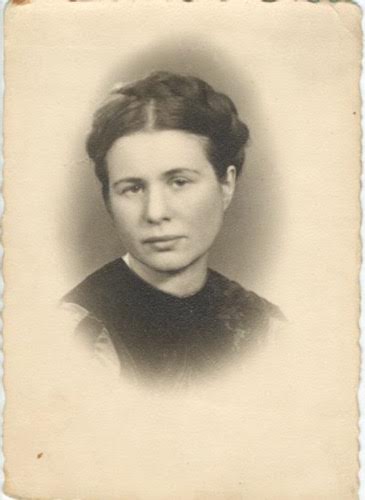Laurie Kelley
May 11, 2008
I celebrated Mother’s Day with my children last night, attending an incredible show in Boston by world famous illusionist David Copperfield (don’t miss him if he comes to your city!). But as impressive as he is, nothing can be more magical than witnessing the growth of children. And what have I learned in 20 years of mothering and having a child development degree on top of it, studying children, and enjoying other people’s children? We can open doors for our children, educate them, love them unconditionally, push them, encourage them, and hope… but in the end, I truly think they will be who they are destined to be from birth. Perhaps we mold them and provide a safety net, but the basic form is already there, and emerges through our patient care and frequent polishing. I think Anna Quindlen has written the greatest words of wisdom on mothering, and I share this with all the hemophilia moms who fret and worry about their sons, and daughters, and how their disorder might affect them. Maybe we can all relax a bit more upon reflection:
“All my babies are gone now. I say this not in sorrow but in disbelief. I take great satisfaction in what I have today: three almost-adults, two taller than I am, and one closing in fast. Three people who read the same books I do and have learned not to be afraid of disagreeing with me in their opinion of them, who sometimes tell vulgar jokes that make me laugh until I choke and cry, who need razor blades and shower gel and privacy, who want to keep their doors closed more than I like. Who, miraculously, go to the bathroom, zip up their jackets and move food from plate to mouth all by themselves. Like the trick soap I bought for the bathroom with a rubber ducky at its center, the baby is buried deep within each, barely discernible except through the unreliable haze of the past.
“Everything in all the books I once poured over is finished for me now. Penelope Leach, T. Berry Brazelton, Dr. Spock. The ones on sibling rivalry and sleeping through the night and early-childhood education, have all grown obsolete. Along with Goodnight Moon and Where the Wild Things Are, they are battered, spotted, well used. But I suspect that if you flipped the pages dust would rise like memories. What those books taught me, finally, and what the women on the playground taught me, and the well-meaning relations–what they taught me, was that they couldn’t really teach me very much at all.
“Raising children is presented at first as a true-false test, then becomes multiple choice, until finally, far along, you realize that it is an endless essay. No one knows anything. One child responds well to positive reinforcement, another can be managed only with a stern voice and a timeout. One child is toilet trained at 3, his sibling at 2.
“When my first child was born, parents were told to put baby to bed on his belly so that he would not choke on his own spit-up. By the time my last arrived, babies were put down on their backs because of research on sudden infant death syndrome. To a new parent this ever-shifting certainty is terrifying, and then soothing. Eventually you must learn to trust yourself. Eventually the research will follow. I remember 15 years ago poring over one of Dr. Brazelton’s wonderful books on child development, in which he describes three different sorts of infants: average, quiet, and active. I was looking for a sub-quiet codicil for an 18-month old who did not walk. Was there something wrong with his fat little legs? Was there something wrong with his tiny little mind? Was he developmentally delayed, physically challenged? Was I insane? Last year he went to China. Next year he goes to college. He can talk just fine. He can walk, too.
“Every part of raising children is humbling, too. Believe me, mistakes were made. They have all been enshrined in the, ‘Remember-When- Mom-Did Hall of Fame.’ The outbursts, the temper tantrums, the bad language, mine, not theirs. The times the baby fell off the bed. The times I arrived late for preschool pickup. The nightmare sleepover. The horrible summer camp. The day when the youngest came barreling out of the classroom with a 98 on her geography test, and I responded, “What did you get wrong?” (She insisted I include that.) The time I ordered food at the McDonald’s drive-through speaker and then drove away without picking it up from the window. (They all insisted I include that.) I did not allow them to watch the Simpsons for the first two seasons. What was I thinking?
“But the biggest mistake I made is the one that most of us make while doing this. I did not live in the moment enough. This is particularly clear now that the moment is gone, captured only in photographs. There is one picture of the three of them, sitting in the grass on a quilt in the shadow of the swing set on a summer day, ages 6, 4 and 1. And I wish I could remember what we ate, and what we talked about, and how they sounded, and how they looked when they slept that night.
“I wish I had not been in such a hurry to get on to the next thing: dinner, bath, book, bed. I wish I had treasured the doing a little more and the getting it done a little less.
“Even today I’m not sure what worked and what didn’t, what was me and what was simply life. When they were very small, I suppose I thought someday they would become who they were because of what I’d done. Now I suspect they simply grew into their true selves because they demanded in a thousand ways that I back off and let them be. The books said to be relaxed and I was often tense, matter-of-fact and I was sometimes over the top. And look how it all turned out. I wound up with the three people I like best in the world, who have done more than anyone to excavate my essential humanity. That’s what the books never told me. I was bound and determined to learn from the experts. It just took me a while to figure out who the experts were.”
—From Anna Quindlen, Newsweek Columnist and Author
Great Book I Just Read: Longitude by Dava Sobel
A horrific disaster at sea off the coast of England in 1707 sinks four English ships laden with merchandise and drowns 2,000 men. The cause? Miscalculation of the whereabouts of the coast and its islands due to inability to discern longitude. Thus sets the race to find a way to reliably calculate longitude, which obsesses England for 60 years. This is a remarkable story of brilliant men of vision–and stubborn men who cling to their outmoded theories–and the quest for a chronometer, the perfect timepiece that will keep the home port time despite tropical heat, and polar cold, despite rolling seas and far away destinations. It’s the story of the watch, told as you could never expect it, with intrigue, determination, and fiery opposition to conventional wisdom. It’s said that the final prize, John Harrison’s H-4, helped create the British Empire by giving her control of the seas… by accurately determining longitude. A small book packed with excitement and facts about our natural world and 18th century England– a must read! Four stars out of four.









